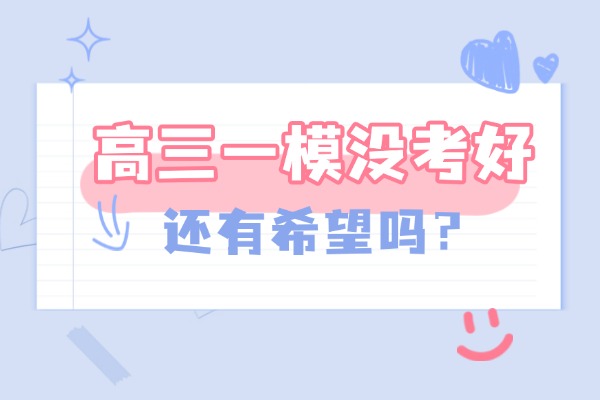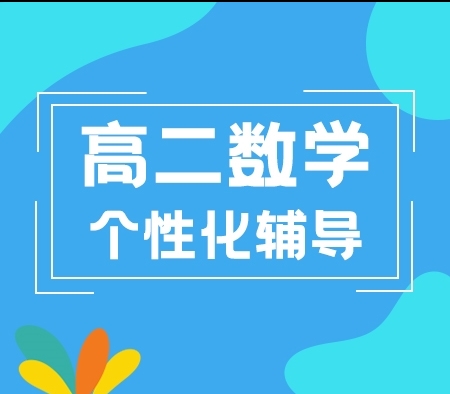中考英语----动词的时态和语态
英语
来源:网络
编辑:小新
2017-08-16 15:47:37
中考是检验初中三年学习成果的考试,要想在中考崭露头角,初中三年得打好基础。英语单词、句式繁多,更要在平时多用时间来复习总结。今天伊顿教育小编跟大家分享的是动词的语法聚焦。更多教育资讯与辅导资料,欢迎关注伊顿教育网站初中英语栏目。

六.动词
I.动词的时态:
1. 动词的时态一共有16种,以ask为例,将其各种时态的构成形式列表如下:
2. 现在完成时与一般过去时的区别:
1) 现在完成时表示过去发生的动作或存在的状况,但和现在有联系,强调的是对现在造成的影响或结果,它不能同表示过去的时间状语连用,汉译英时可加“已经”等词。简言之,利用过去,说明现在。如:
I have already read the novel written by the world-famous writer. (已经看过,且了解这本书的内容)
2) 一般过去时只表示过去发生的动作或状态,和现在无关,它可和表示过去的时间状语连用,汉译英时可加“过”,“了”等词。简言之,仅谈过去,不关现在。如:
I read the novel last month. (只说明上个月看了,不涉及现在是否记住)
I lived in Beijing for ten years.(只说明在北京住过十年,与现在无关)
3. 现在完成时与现在完成进行时的区别:
两者都可以表示“从过去开始一直持续到现在”,在含义上如着重表示动作的结果时,多用现在完成时,如着重表示动作一直在进行,即动作的延续性时,则多用现在完成进行时。一般不能用于进行时的动词也不能用于现在完成进行时。
I have read that book.我读过那本书了。
I have been reading that book all the morning. 我早上一直在读那本书。
4. 一般将来时的表达方式:
#p#副标题#e#
II. 动词的被动语态:

六.动词
I.动词的时态:
1. 动词的时态一共有16种,以ask为例,将其各种时态的构成形式列表如下:
| 现在时 | 过去时 | 将来时 | 过去将来时 | |
| 一般 | ask / asks | asked | shall/will ask | should/would ask |
| 进行 | am/is/are asking | was/were asking | shall/will be asking | should/would be asking |
| 完成 | have/has asked | had asked | shall/will have asked | should/would have asked |
| 完成进行 | have/has been asking | had been asking | shall/will have been asking | should/would have been asking |
2. 现在完成时与一般过去时的区别:
1) 现在完成时表示过去发生的动作或存在的状况,但和现在有联系,强调的是对现在造成的影响或结果,它不能同表示过去的时间状语连用,汉译英时可加“已经”等词。简言之,利用过去,说明现在。如:
I have already read the novel written by the world-famous writer. (已经看过,且了解这本书的内容)
2) 一般过去时只表示过去发生的动作或状态,和现在无关,它可和表示过去的时间状语连用,汉译英时可加“过”,“了”等词。简言之,仅谈过去,不关现在。如:
I read the novel last month. (只说明上个月看了,不涉及现在是否记住)
I lived in Beijing for ten years.(只说明在北京住过十年,与现在无关)
3. 现在完成时与现在完成进行时的区别:
两者都可以表示“从过去开始一直持续到现在”,在含义上如着重表示动作的结果时,多用现在完成时,如着重表示动作一直在进行,即动作的延续性时,则多用现在完成进行时。一般不能用于进行时的动词也不能用于现在完成进行时。
I have read that book.我读过那本书了。
I have been reading that book all the morning. 我早上一直在读那本书。
4. 一般将来时的表达方式:
| 将来时 | 用法 | 例句 | |
| 1 | will/shall+动词原形 | 表示将来发生的动作或存在的状态 | My sister will be ten next year. |
| 2 | be going to+动词原形 | 含有“打算,计划,即将”做某事,或表示很有可能要发生某事 |
It’s going to clear up. We’re going to have a party tonight. |
| 3 | be + doing 进行时表示将来 | go, come, start, move, leave, arrive等词可用进行时表示按计划即将发生的动作 |
He is moving to the south. Are they leaving for Europe? |
| 4 | be about to + 动词原形 | 表示安排或计划中的马上就要发生的动作,后面一般不跟时间状语 |
I was about to leave when the bell rang. The meeting is about to close. |
| 5 | be to + 动词原形 | 表示按计划进行或征求对方意见 | We’re to meet at the school gate at noon. |
| 6 | 一般现在时表示将来 | 时刻表上或日程安排上早就定好的事情,可用一般现在时表示将来 |
The meeting starts at five o’clock. The plane leaves at ten this evening. |
II. 动词的被动语态:
| 常用被动语态 | 构成 | 常用被动语态 | 构成 | ||
| 1 | 一般现在时 | am/is/are asked | 6 | 过去进行时 | was/were being asked |
| 2 | 一般过去时 | was/were asked | 7 | 现在完成时 | have/has been asked |
| 3 | 一般将来时 | shall/will be asked | 8 | 过去完成时 | had been asked |
| 4 | 过去将来时 | should/would be asked | 9 | 将来完成时 | will/would have been asked |
| 5 | 现在进行时 | am/is/are being asked | 10 | 含有情态动词的 | can/must/may be asked |
|
注 意 事 项 |
被动语态的否定式是在第一个助动词或情态动词后加not,短语动词的被动态不可漏掉其中介副词。固定结构be going to, used to, have to, had better变为被动态时,只需将其后的动词变为被动态。 如: Trees should not be planted in summer. / The boy was made fun of by his classmates. Newspapers used to be sent here by the little girl. |
||||
|
汉语有一类句子不出现主语,在英语中一般可用被动结构表示。如: It is believed that… It is generally considered that… It is said that… It is well known that… It must be pointed out that… It is supposed that… It is reported that… It must be admitted that… It is hoped that… |
|||||
|
下面主动形式常表示被动意义:如: The window wants/needs/requires repairing. The book is worth reading twice. The door won’t shut. / The play won’t act. The clothes washes well. / The book sells well. The dish tastes delicious. / Water feels very cold. |
|||||
|
下面词或短语没有被动态: leave, enter, reach, become, benefit, cost, equal, contain, last, lack, fit, fail, have, appear, happen, occur, belong to, take place, break out, come about, agree with, keep up with, consist of, have on, lose heart等等 |
|||||
*本文内容来源于网络,由秦学教育整理编辑发布,如有侵权请联系客服删除!
上一篇:中考英语----情态动词的基本用法与must, may, might, could, can表示的含义
下一篇:中考英语----介词的分类与常用介词的区别
- 热门课程
- 热门资讯
- 热门资料
- 热门福利
-
 西安伊顿教育有高三冲刺班吗?高三学生基础不好怎么学呢?高三的很多学生在复习阶段出现很多的问题,在这个阶段学生如果基础知识掌握的不扎实,在考试中是很难取得好成绩,那想要获得好的学习方法成为了大家关注的重点,小编今天就跟大家详细聊聊“高三学生基础不好怎么学呢?西安伊顿教育有高三冲刺班吗?”这两个问题,希望能对大家有帮助。 高三学生基础不好怎么学呢?
西安伊顿教育有高三冲刺班吗?高三学生基础不好怎么学呢?高三的很多学生在复习阶段出现很多的问题,在这个阶段学生如果基础知识掌握的不扎实,在考试中是很难取得好成绩,那想要获得好的学习方法成为了大家关注的重点,小编今天就跟大家详细聊聊“高三学生基础不好怎么学呢?西安伊顿教育有高三冲刺班吗?”这两个问题,希望能对大家有帮助。 高三学生基础不好怎么学呢? -
 高三数学一对一补课有效果吗?西安伊顿教育一对一补课行不行?数学这个科目是很重要的,很多学生想要在考试中取得好成绩,那这个科目就得学好,借助补课班来提升数学成绩是一种可行的方式,那高三数学一对一补课有效果吗?西安伊顿教育一对一补课行不行呢?本文将跟大家详细聊聊这两个问题,希望对大家有帮助。 高三数学一对一补课有效果吗? 高三数学一对一补课是有效果的,
高三数学一对一补课有效果吗?西安伊顿教育一对一补课行不行?数学这个科目是很重要的,很多学生想要在考试中取得好成绩,那这个科目就得学好,借助补课班来提升数学成绩是一种可行的方式,那高三数学一对一补课有效果吗?西安伊顿教育一对一补课行不行呢?本文将跟大家详细聊聊这两个问题,希望对大家有帮助。 高三数学一对一补课有效果吗? 高三数学一对一补课是有效果的, -
 初三学生基础很差怎么学?选择西安伊顿教育初三冲刺班还有救吗?初三的学生往往会遇到成绩无法提升的情况,那这往往是因为基础不好造成的,那么想要提升成绩应该怎么学呢?如果选择西安伊顿教育初三冲刺班,能改变成绩差的情况吗?本文将跟大家详细聊聊这两个问题,希望对大家有帮助。 初三学生基础很差怎么学? 1、制定学习目标。初三学生想要弥补成绩差的问题,那就可以给自
初三学生基础很差怎么学?选择西安伊顿教育初三冲刺班还有救吗?初三的学生往往会遇到成绩无法提升的情况,那这往往是因为基础不好造成的,那么想要提升成绩应该怎么学呢?如果选择西安伊顿教育初三冲刺班,能改变成绩差的情况吗?本文将跟大家详细聊聊这两个问题,希望对大家有帮助。 初三学生基础很差怎么学? 1、制定学习目标。初三学生想要弥补成绩差的问题,那就可以给自 -
 高三一模考300分还有救吗?秦学伊顿补习学校能有帮助吗?高三的学生到了现在这个时间会有一种紧迫感,想要快速提升成绩成为了迫切的期待,但高三学生一模只考了300分还有救吗?如果选择机构的话,秦学伊顿补习学校能有帮助吗?本文将跟大家详细聊聊这两个问题,希望对大家有帮助。 高三一模考300分还有救吗? 高三一模考到300分,这个成绩是不算太好的,但是想
高三一模考300分还有救吗?秦学伊顿补习学校能有帮助吗?高三的学生到了现在这个时间会有一种紧迫感,想要快速提升成绩成为了迫切的期待,但高三学生一模只考了300分还有救吗?如果选择机构的话,秦学伊顿补习学校能有帮助吗?本文将跟大家详细聊聊这两个问题,希望对大家有帮助。 高三一模考300分还有救吗? 高三一模考到300分,这个成绩是不算太好的,但是想
-
 清华大学1933年高考试卷什么样?8个科目仅一张考卷,且仅有8道题说起清华大学,那还真不是一般的难考呀,翻看往年的录取分数线,我们不难发现除了个别特殊的省份外,较低都在600以上呢,这么高的分数恐怕只有各省较好高中的尖子生才能进去吧! 如果想获取更多学校资讯、学校轶事、大学、学习资料以及自主招生方面相关的信息,小鱼老师分享大家去关注考学校公众
清华大学1933年高考试卷什么样?8个科目仅一张考卷,且仅有8道题说起清华大学,那还真不是一般的难考呀,翻看往年的录取分数线,我们不难发现除了个别特殊的省份外,较低都在600以上呢,这么高的分数恐怕只有各省较好高中的尖子生才能进去吧! 如果想获取更多学校资讯、学校轶事、大学、学习资料以及自主招生方面相关的信息,小鱼老师分享大家去关注考学校公众 -
 观神州十三号发射直播有感 神州十三号发射观后感作文最近我们航天事业频频传来喜报,神州十三号又成功发射了。不知道大家有没有去观看直播呢?相信咱们看了直播的心中一定是无比激动和自豪,大家也有想说话来表达自己激动的心情,这里呢就有几篇是关于观看神州十三号发射的观后感,我们来看看大家都是怎样形容自己的心情的。 观神州十三号发射直播有感 神州十三号发射
观神州十三号发射直播有感 神州十三号发射观后感作文最近我们航天事业频频传来喜报,神州十三号又成功发射了。不知道大家有没有去观看直播呢?相信咱们看了直播的心中一定是无比激动和自豪,大家也有想说话来表达自己激动的心情,这里呢就有几篇是关于观看神州十三号发射的观后感,我们来看看大家都是怎样形容自己的心情的。 观神州十三号发射直播有感 神州十三号发射 -
 观《长津湖》有感作文 电影长津湖观后感近期热映电影《长津湖》让我们每个人的心灵震撼,这部电影讲述了抗美援朝时期的战争,在电影院看这部电影的观众们无一不是感动到热泪,走出影院的步伐也是沉重的。《长津湖》反映了抗美援朝时期的中国人民志愿军为捍卫祖国,保家卫民浴血战场,我们来看大家对这部影片看完后的感想,分享几篇电影长津湖观后感作文给到你
观《长津湖》有感作文 电影长津湖观后感近期热映电影《长津湖》让我们每个人的心灵震撼,这部电影讲述了抗美援朝时期的战争,在电影院看这部电影的观众们无一不是感动到热泪,走出影院的步伐也是沉重的。《长津湖》反映了抗美援朝时期的中国人民志愿军为捍卫祖国,保家卫民浴血战场,我们来看大家对这部影片看完后的感想,分享几篇电影长津湖观后感作文给到你 -
 孟晚舟回国作文素材 孟晚舟高考热点写作角度最近孟晚舟回国的消息另大家振奋,经历这么长时间的家,她终于要回来了,相信各方都在努力争取孟晚舟女士能够早日回国。终于我们的努力没有白费,孟晚舟女士终于回到了祖国母亲的怀抱。如果将其作为高考的热点,可能会出现在作文当中,下面分享关于孟晚舟女士回国事件主题的写作角度和作为素材。 主题:孟晚舟回国
孟晚舟回国作文素材 孟晚舟高考热点写作角度最近孟晚舟回国的消息另大家振奋,经历这么长时间的家,她终于要回来了,相信各方都在努力争取孟晚舟女士能够早日回国。终于我们的努力没有白费,孟晚舟女士终于回到了祖国母亲的怀抱。如果将其作为高考的热点,可能会出现在作文当中,下面分享关于孟晚舟女士回国事件主题的写作角度和作为素材。 主题:孟晚舟回国
亲爱的家长(学生)您好:


















 All right reserved
All right reserved
